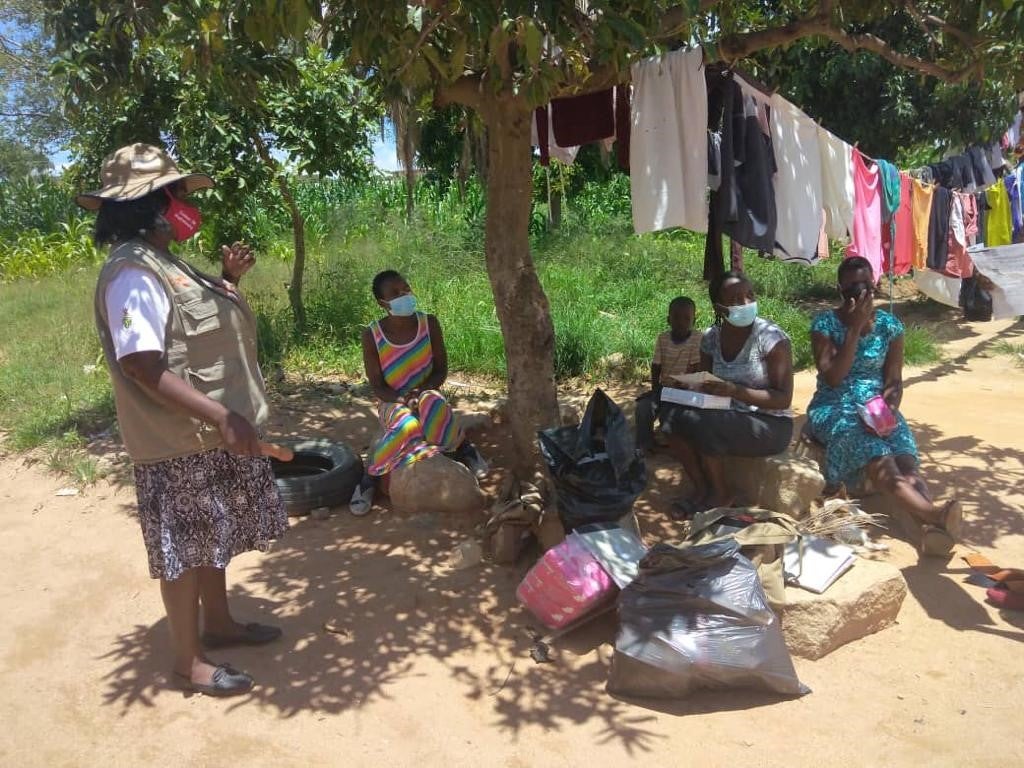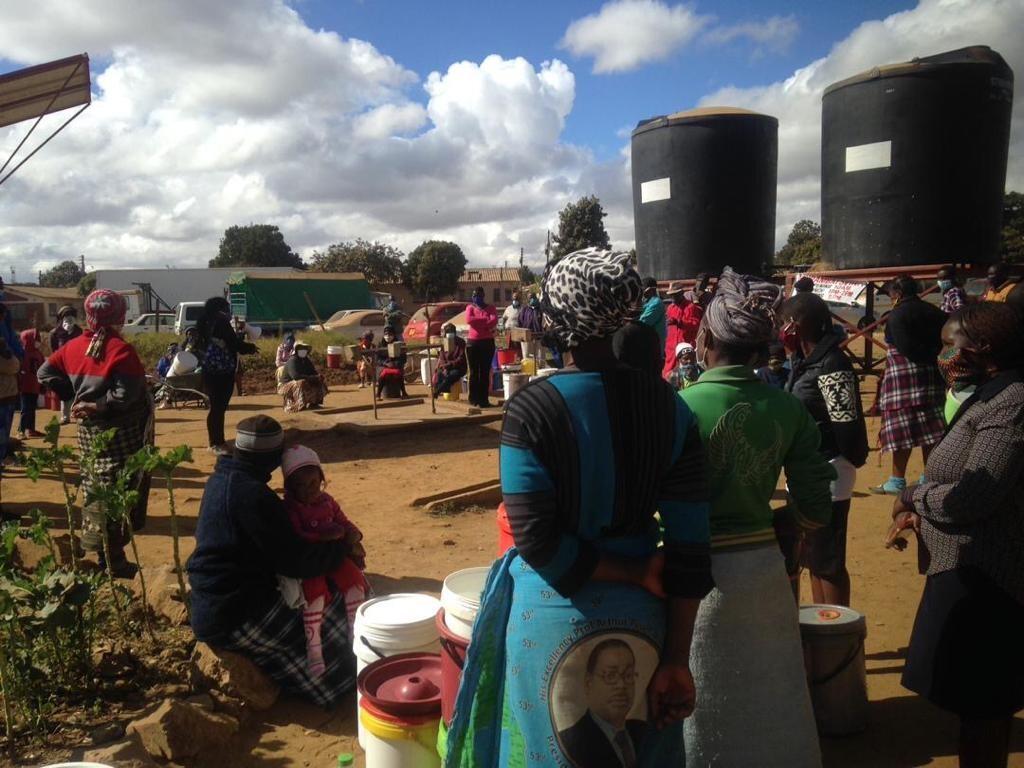*Chido was married at 16 to a 22-year-old man in Hopley, a high density area south of Zimbabwe’s capital city Harare. At 21, Chido now has two children – a boy and a girl. Her husband was abusive from the onset of the marriage. “Hapaipera vhiki ndisina kurohwa” (No week would go by without being physically abused).
“Even though my husband was formally employed, he was irresponsible. I struggled to take care of the children. Eventually, I was chased out of the home at night with nowhere to go. Fortunately, some well-wishers assisted me with a place to stay while I sorted myself out. My estranged husband started coming to my place of stay, forcing me to have sex with him”.
Chido met with a Behaviour Change Facilitator (BCF) based in the same area. The BCF spoke to her about various topics to do with sexual and reproductive health and gender based violence. One of the days Chido found the strength to disclose the abusive situation she was in to the BCF. The BCF was quick to support Chido and told her about the options that are available for her. She referred Chido to the clinic, to the Victim Friendly Unit (VFU) and for legal support services. Chido went to the clinic and received services that include STI screening, HIV testing and family planning counselling. Chido also went to the VFU, and was supported to access legal support to enable her to receive reprieve and maintenance support for her children.
The United Nations Population Fund (UNFPA) under the Spotlight Initiative, a global European Union funded project, is supporting ZICHIRE to implement the community based Social Behaviour Change Communications (SBCC) initiatives to address GBV, and promote Sexual Reproductive Health and Rights. ZICHIRE works with community based volunteers, “BCFs” who are trained to deliver interpersonal communication and information on SRHR, HIV and GBV prevention and services within their communities. BCFs are a resource available to the community to support with SRHR, HIV and GBV prevention and services where required. As part of their routine work, they provide psychosocial first aid to consenting survivors, refer GBV cases for appropriate support, and GBV surveillance by tracking GBV cases attended. BCFs issue referral slips and use standard form to document GBV cases as the surveillance process and reporting.
Obey Mukorera, the ZiCHIRE Programme Officer in Hopley says Chipo’s case is one of the many cases of Gender Based Violence (GBV) reported to BCFs in Hopley. Obey says the work of BCFs, particularly GBV surveillance, has been crucial in the identification of abuse cases and initiating timely referral for provision of life-saving services to survivors.
“We have been referring quite a number of GBV cases to essential services, through the GBV surveillance, thanks to the support of the Spotlight Initiative. Due to the sensitization on GBV, people are now speaking out about rape and more cases against women and minors are reported now”. BCFs are playing an amazing role in assisting the survivors who feel comfortable to disclose, to access services in a timely manner, and providing following up to ensure that survivors receive all the support.” Obey says.
“At the core of our support is providing Psychological First Aid to survivors before referring them to specialized GBV services - such as clinical management, legal support and safe shelter services. We work with the various stakeholders including the Ministry of Women Affairs and the Ministry of Social Welfare, and their social workers, in cases of violence against minors. We also work closely with Case Care Workers (CCWs) for cases that involve children. Since the beginning of the year, I have referred 3 minors to social services for protection and the necessary services.”
In Hopley, BCFs, provide psychosocial support to survivors and refer them to Tariro Clinic, the nearest health facility that provides clinical management of sexual violence. ZiCHIRE says, in critical cases, such as Intimate Partner Violence cases, or when survivors are in need of mid to long term protection services, BCFs work with Musasa Project, and connect them with the GBV shelter in Harare.
“Within the new COVID-19 Era, BCFs adapted the way of reaching their audience, through engagement at essential services entry points, such as water collection points, community boreholes, to ensure continuous dissemination of information on GBV prevention and referral pathways, and to encourage survivors to seek GBV services. These gatherings also provided the BCFs and CCWs a platform to share information on COVID-19 prevention,” Obey says.

In 2020, according to ZiCHIRE, statistics recorded in Hopley indicate that 695 GBV cases were reported through GBV surveillance initiative - of these, 573 were females and 122 males. These cases were identified in Hopley and surrounding areas with 334 females and 74 males reporting physical violence, 30 cases of sexual violence while emotional violence was reported by 37 males and 6 females. In addition, 44 cases of economic violence were reported by 33 females and 11 males.
GBV remains a huge problem in Zimbabwe with the 2015 Zimbabwe Demographic Health Survey indicating that it affects at least 1 in 3 women. In 2020, the Ministry of Women Affairs, Community and Small and Medium Enterprises Development revealed that the COVID-19 lockdown and movement restrictions had worsened the risk of exposure to GBV as women and girls are in confined spaces with potential perpetrators.
This article was first published in the Spotlight Initiative bi-weekly newsletter.
*Not her real name


